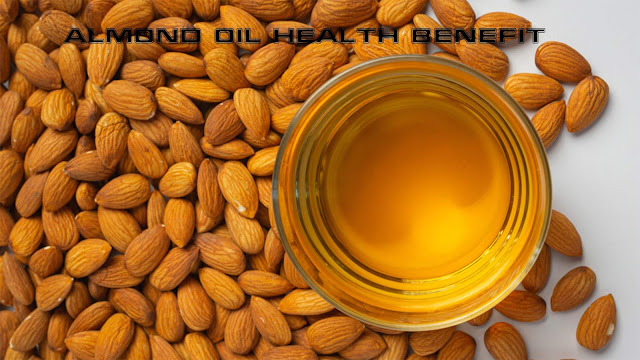Health Benefits of Lentils:Lentils are a nutrient-rich food that comes in different colors, sizes, and shapes. Lentils are one of the world’s oldest health foods, dating back to 8000 B.C, first cultivated in the Middle East. Lentils have a rich history of being a staple part of a healthy diet for people from all cultures, classes, and religions.
Lentils provide high amounts of protein, fiber, B-vitamins, and other nutrients. They are easy to cook and can be added to stir-fry or soup dishes. Lentils are also very inexpensive. This makes them a popular option for many people who cannot afford to buy meat frequently.
Lentils are an excellent food option – eating lentils offers many benefits, including better cardiovascular health. Lentils are high in fiber, low in fat, and have complex carbohydrates. They’re also high in protein content. They are the perfect food for those looking to boost their protein intake!
Health Benefits of Lentils:
Lentils are a plant-based protein powerhouse. They’re low in fat, contain no cholesterol, and tend to be high in fiber in most varieties. Lentil protein is in the top three in protein concentration out of all beans, with soy taking the top spot, so they offer the same protein quality when paired with brown rice. The lentil’s heart-healthy qualities are due to their lack of saturated fats and cholesterol found in red meat. Lentils are also loaded with potassium, which can help regulate blood pressure levels.
Lentils are rich in protein, which is essential for building bones, muscles, and skin. It has also been shown to curb your appetite because it keeps you feeling full longer than other nutrients do. Lentils also contain plenty of folates, which helps to prevent anemia.
Lentils are packed with fiber, protein, iron, and other nutrients, making them an excellent energy source. They are also low in calories and fat. Lentils can be cooked in a variety of ways to suit your taste buds. One way is to boil them in water for about 30 minutes or bake them at 350 degrees Fahrenheit for about 20 minutes.
Lentils are one of the most nutritious legumes, with a high protein, fiber, and iron content. They’re also very cheap to buy in bulk, which is excellent for budgeting. If you can afford it, you should be buying lentils instead of using any other kind of beans! Iron helps ward off fatigue.
Lower Cholesterol:
Fibre also helps cleanse your blood of cholesterol and lower your risk of heart disease and stroke by keeping your arteries clean. Cholesterol is a type of fat that is found in the body. When there is too much cholesterol in the blood, it can build up on the walls of the arteries and harden like plaque. This plaque creates blockages that stop blood flow to your heart muscle. Lowering cholesterol levels can be done with changes in diet and lifestyle, such as eating more fiber-rich foods like fruits, vegetables, grains, beans, and oat bran or walnuts.
Heart Health:
Eating high-fiber foods like lentils is a great way to lower your risk of heart disease. Lentils also provide folate, Magnesium, and other nutrients that are important for heart health. Folate lowers your homocysteine levels, another risk factor for heart disease.
Lentils contain a high amount of Magnesium, an essential mineral that has many benefits to the heart. It can lower blood pressure and blood clotting, which decreases the risk of cardiovascular disease. Magnesium is necessary for proper mitochondrial function and prevents oxidative stress and inflammation, significant contributors to heart disease.
Digestive Health:
Dietary fiber is an essential part of a diet. Some benefits of dietary fiber are that it helps prevent constipation, diverticulosis, and irritable bowel syndrome. However, many people do not get enough fiber in their diet. Insoluble dietary fiber found in foods like oatmeal, brown rice, and vegetables can help to contribute to healthy digestive functioning.
Stabilized Blood Sugar:
The digestive process happens in two phases. The first phase, called the “fermentation phase,” breaks down starch into sugars that the body can absorb. The second phase, called the “absorption phase,” absorbs these sugars through small intestinal walls and blood. For people with diabetes, both phases of digestion are impaired, leading to unstable blood sugar levels, causing fluctuations in energy levels and appetite control.
Good Protein:
Lentils are loaded with protein. They’re an excellent source of protein for vegetarians and vegans who need to fill their diet with macronutrients. Lentils also offer good sources of fiber, folate, thiamin, Magnesium, potassium, zinc, phosphorus, and vitamin B6.
Increases Energy:
Lentils are an excellent source of complex carbohydrates. These types of carbohydrates take longer to break down in the body, which means they give your body a steady supply of slow-burning energy. They also have a decent amount of fiber, which can help you feel full for hours after eating lentils.
Weight Loss:
Lentils are a great option when trying to lose weight. Lentils are high in protein, fiber, and minerals, but they also have a low-calorie count. One cup of cooked lentils only contains about 230 calories. If you want to lose weight while getting all the benefits of a healthy diet, load up on lentils!








